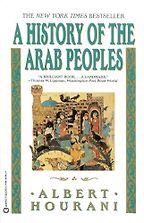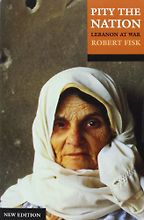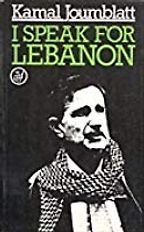Lebanon
Last updated: September 23, 2020
Here are five books to help you better understand Lebanon.
Lebanon is a very small country that has consistently punched above its weight. It was formed, in its present state, in the wake of World War I, arguably with the interests of imperial France given more consideration than those of the Lebanese people. Independence came in the wake of World War II, and the thirty years that followed the end of that conflict are looked back on as golden years of peace and prosperity. In 1975, a bitter civil war broke out, dividing the country along confessional lines and providing a forum for the wider conflicts of the Middle East to play out by proxy. The war ended in 1990, but the good times did not return. The root of Lebanon’s persistent problems remains contested. Some blame foreign interference, others blame its structurally sectarian politics and domestic corruption. Either way, the hopes that greeted the end of the civil war in 1990 seem further off than ever.
These books on Lebanon provide a wide range of views and perspectives on the country's history, conflicts and future.
I Killed Scheherazade: Confessions of an Angry Arab Woman
by Joumana Haddad
Joumana Haddad is a Lebanese writer, journalist, poet, feminist and political activist. She sees the social and political dysfunction of Lebanon—and, indeed, of the whole Arab world—as rooted in its confessional politics and patriarchal social structures. The solution to Lebanon’s woes, in her view, lies in pulling down sectarianism and patriarchy. In I Killed Scheherazade, she delivers a devastating attack on the subordinate position of women in Arab society—and the social, religious and legal norms that enforce it—by telling the story of her own sexual awakening and intellectual liberation. She makes an impassioned case for the social and political and, in particular, sexual emancipation of women throughout the Arab world, arguing that sexual equality must be at the root of a general democratisation of the region. In a follow-up book, Superman is an Arab: On God, Marriage, Macho Men and Other Disastrous Inventions, she argues that patriarchy has had an appalling effect on Arab men and that their own liberation would follow on the heels of their sisters’, if they’d only let it.
A House of Many Mansions: The History of Lebanon Reconsidered
by Kamal Salibi
Kamal Salibi’s history focuses on the political and social roots of Lebanon’s political malaise. He explains how and why the different communities in the country have such divergent myths of nationhood and belonging. He explores the malign impact of these competing visions on the political functioning and stability of the country and asks whether it has to be this way.
A History of the Arab Peoples
by Albert Hourani
You can’t understand Lebanon without understanding the wider neighbourhood. Hourani was a 20th century British-Lebanese historian and this is his highly readable, bestselling account of the Arab world. It takes the story from the period before the birth of Islam and the Arab conquests up to the mid-20th century. He finds a unity in Arab culture that transcends confessional lines. The Egyptian journalist, Tarek Osman, told us that this focus on Arabism as a coherent identity that includes Christians and other confessions as well as Muslims—rather than, as with many histories of the Arab world, a story about the flow of the different Islamic empires—was Hourani’s uniquely important historical perspective.
Pity the Nation
by Robert Fisk
British journalist Robert Fisk covered the Lebanese civil war for The Times of London. He was one of the very few foreign correspondents to remain in Beirut throughout the war. Pity the Nation is his story of the conflict. It was published in 1990 and is a gripping account of the horrors of that conflict, including the notorious Sabra and Chatila massacres of Palestinian refugees in 1982. Eugene Rogan of Oxford University’s Middle East Centre told us: “I think it probably stands as the best example of a book of political journalism, of conflict in the Middle East, that I can think of. He just writes like an angel.”
I Speak for Lebanon
by Kamal Joumblatt
This book is worth reading because of who the author is, as much as because of what he says. Jumblatt embodied some of the confusing paradoxes of Lebanese politics. He founded Lebanon’s Progressive Socialist Party and was a great admirer of Gandhi. But his political prominence really rested on his role as the hereditary chief of the Druze community. As such, he was a prominent politician and warlord in the early stages of the Lebanese civil war. He was assassinated in 1977 at the behest of the Syrian government. This book, published posthumously, contains his reflections on the Arab-Israel conflict, the possibility of democracy in the region, the outlook for peace in Lebanon and what he saw as the twin curses of Middle Eastern politics—oil and sectarianism.




